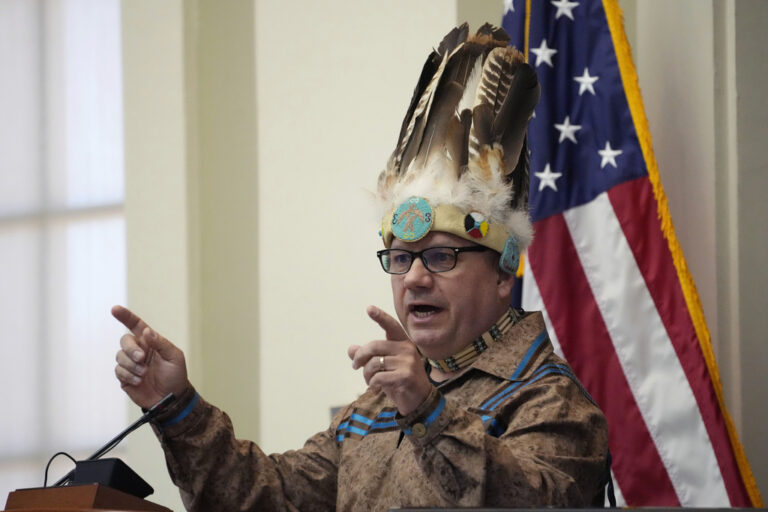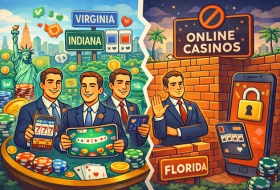
Maine lawmakers have revived and advanced a long-stalled online casino bill, but players hoping to spin legal slots anytime soon may want to keep their expectations in check.
On June 16, the Maine Senate passed LD 1164, a bill that would legalize real-money online casino gaming in the state—but exclusively for the Wabanaki Confederacy’s four federally recognized tribes. The vote followed the bill’s June 13 approval in the House and capped a last-minute turnaround ahead of the legislative session’s June 18 deadline.
If signed into law, LD 1164 would allow the Penobscot Nation, Passamaquoddy Tribe, Maliseet Nation, and Mi’kmaq Nation to each hold one online casino license. Those licenses could be used in partnership with commercial platform providers, mirroring the structure already in place for online sports betting in Maine.
That model has proved lucrative. The state’s tribes partnered with national sportsbooks like DraftKings and Caesars to operate exclusive mobile betting apps, and both companies supported LD 1164’s push to expand into online casino territory.
But not everyone was on board. Maine’s two commercial casino operators, PENN Entertainment and Churchill Downs, strongly opposed the bill, citing fears of lost revenue and limited market access. Their resistance echoes the same arguments made during last year’s failed iCasino attempt—one that ultimately stalled before a vote.
Even with legislative backing this time, the bill still faces an uncertain future. Gov. Janet Mills has not commented publicly on LD 1164. While her administration negotiated Maine’s current tribal sports betting deal, she’s expressed reservations about expanded gambling in the past. A veto would not be unprecedented.
Regulators Slam Unlicensed Sites Amid Legislative Push
While the iGaming bill moves forward, Maine’s Gambling Control Unit (GCU) is sounding alarms over the current state of online gambling in the state. In back-to-back warnings this month, GCU Director Milton Champion reminded the public that no platform is currently licensed to offer real-money online casino gaming in Maine.
The GCU’s advisories specifically target social casinos—many of which use alternative currency systems while still offering players real-money prizes or gift cards. According to the GCU, these sites are not licensed, not regulated, and not protected under Maine law, leaving players vulnerable if disputes arise.
“The agency will not be able to intervene,” Champion said, underscoring the lack of consumer protections in this rapidly expanding gray market.
The Stakes for Sweepstakes Operators
Maine’s crackdown on unlicensed iGaming didn’t sit quietly with everyone. The Social and Promotional Games Association (SPGA) fired back at the Gambling Control Unit’s warnings, defending sweepstakes casinos as legal and misunderstood.
The SPGA has emphasized that these platforms operate under well-established promotional sweepstakes laws—the same laws that govern everything from McDonald’s Monopoly to multimillion-dollar prize drawings. Unlike offshore gambling sites, many SPGA-member platforms are U.S.-based, tax-paying entities that follow strict rules to stay compliant.
And while the GCU paints sweepstakes casinos with the same brush as rogue gambling operators, the SPGA argues that this rhetoric unfairly stigmatizes platforms that are transparent, consumer-friendly, and legally vetted. There’s a difference between a loophole and a framework—and calling the whole category “unlicensed” ignores the nuance.
Legal Now? Not Quite.
Despite LD 1164’s progress, players shouldn’t expect a quick rollout. The bill must still be finalized in both chambers and signed by the governor. Even if enacted, regulators would need months to develop licensing procedures, approve tribal partnerships, and build oversight infrastructure.
And while the bill includes language allowing Maine to join the Multi-State Internet Gaming Agreement (MSIGA)—a move that would enable shared online poker liquidity with states like Michigan and New Jersey—there’s no timeline attached to that possibility.
At minimum, legal iCasino platforms in Maine wouldn’t launch before 2026, and even that depends on several variables breaking in favor of supporters.
The Bottom Line for Players
As of now, online slots, blackjack, roulette, and poker remain illegal in Maine unless played in person at one of the state’s two licensed casinos. That hasn’t stopped unlicensed sites from targeting Mainers, but state regulators are actively discouraging residents from engaging with those platforms.
If LD 1164 becomes law, players will eventually gain access to legal, tribal-operated online casino games. Until then, any site promising real-money wins in Maine exists in a legal gray area.
*This article was created by the author with help from AI tools. We use AI to organize complex info faster and assist in writing to ensure you get as much helpful info in as little time as possible. Every post is researched, reviewed, and edited by people who actually know their stuff.





